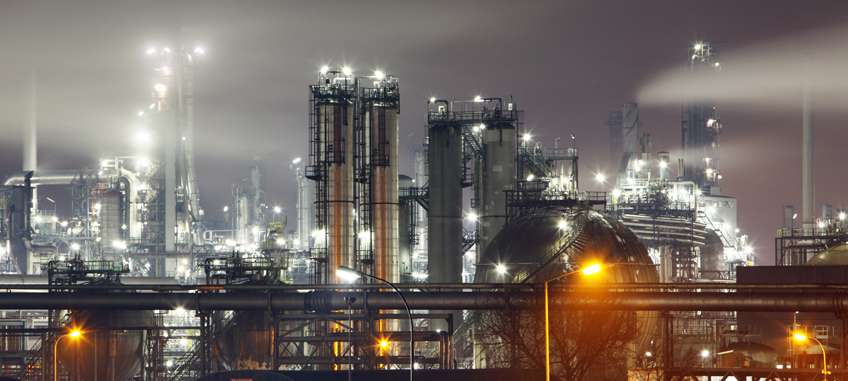Situation
Several top-driven stirred tank reactors, which are run discontinuously in batch operation
Sealing solution for a polymer dispersion plant

Several top-driven stirred tank reactors, which are run discontinuously in batch operation
High pressures and temperatures; a standstill of the stirred tank reactor during the chemical process has to be avoided at all costs
HSHLV-D agitator seals to seal the stirred tank reactor, and mechanical seals Typ M481 in the reactors storage tanks
In a production facility for aqueous polymer dispersions, several stirred tank reactors are run discontinuously in batch operation. This means that the tank is filled at the beginning of the process and then set to the required operating conditions. Diverse monomers and water are used as raw materials. Through polymerization they react to form polymers which at the end of the reaction exist in aqueous solution as a dispersion.
The agitator is not allowed to stop while the reaction is in progress as this could result in a runaway reaction, i.e. overheating and even uncontrolled release of chemicals. Thus, the agitator seal must be especially reliable and have considerably higher lifetimes. The second factor to be considered are pressures up to 100 bar that have to be handeled by the implemented seal.
The first stirred tank reactors, in use since the early 80’s, were originally fitted with other seal types from a competitor. Already in the 80’s these were converted to EagleBurgmann seals, which lead to a significant increase of the lifetime. By further optimization regarding construction details and material selection the lifetime could be further increased. To keep the level of the best available technology a new seal type, the HSHLV-D was tested. With it an average MTBF of 2 to 3 years was achieved. One seal set a new lifetime record of more than 4 years.

Download the solution flyer

Between June 2017 and March 2019 the Hengli Group constructed an integrated refining and chemical complex in the Chinese harbor town Dalian where 20 million tons of crude oil are processed every year. EagleBurgmann advised the company Hengli concerning the selection of mechanical seals and supply systems for the whole plant and supplied more than 95 % of the components in use.

In Great Britain, a shortage in natural gas supply has severe consequences: Since the country switched from coal-fired to gas-fired power stations, a gas supply shortage makes households and industrial consumers not only vulnerable to failing heating and gas stoves, but also to power outages. Companies along the value and transportation chain of natural gas are therefore especially dependent on reliable equipment.

Things get hot in rotary kilns, very hot in fact. In the production of cement, for example, the thermometer measures more than 1,000 degrees Celsius. Sealing systems from EagleBurgmann, a company of the Freudenberg Group and EKK, make sustainable contributions to environmental protection, energy efficiency and process reliability under these "fiery" high-temperature conditions.

Our modern civilization is quite literally built upon cement. Today, building materials made from cement are used in buildings, roads, bridges, dams etc. Cement production is a heat-intensive process and causes thermal expansion in duct systems. To compensate this, Indian cement producer Ramco Cement needed fabric expansion joints with a diameter of several meters for two of their plants. On the basis of a close collaboration, EagleBurgmann was able to design components that increase the efficiency of the plant in the long run.

Frequent starts and stops are a severe test for gas-lubricated compressor seals. Installed in an Argentinean combined cycle power plant is an EagleBurgmann supply system that provides a continuous gas flow rate for the seals and adapts it to changing conditions. Since then, the operational reliability of the compressors has increased significantly.

Seals are a risk factor in the production of liquid crystals. If there is even the slightest contamination of the liquid crystals, this will later affect the image quality of the display. Read on to see which sealing solution Merck KGaA uses in paddle dryers for the production of liquid crystals.